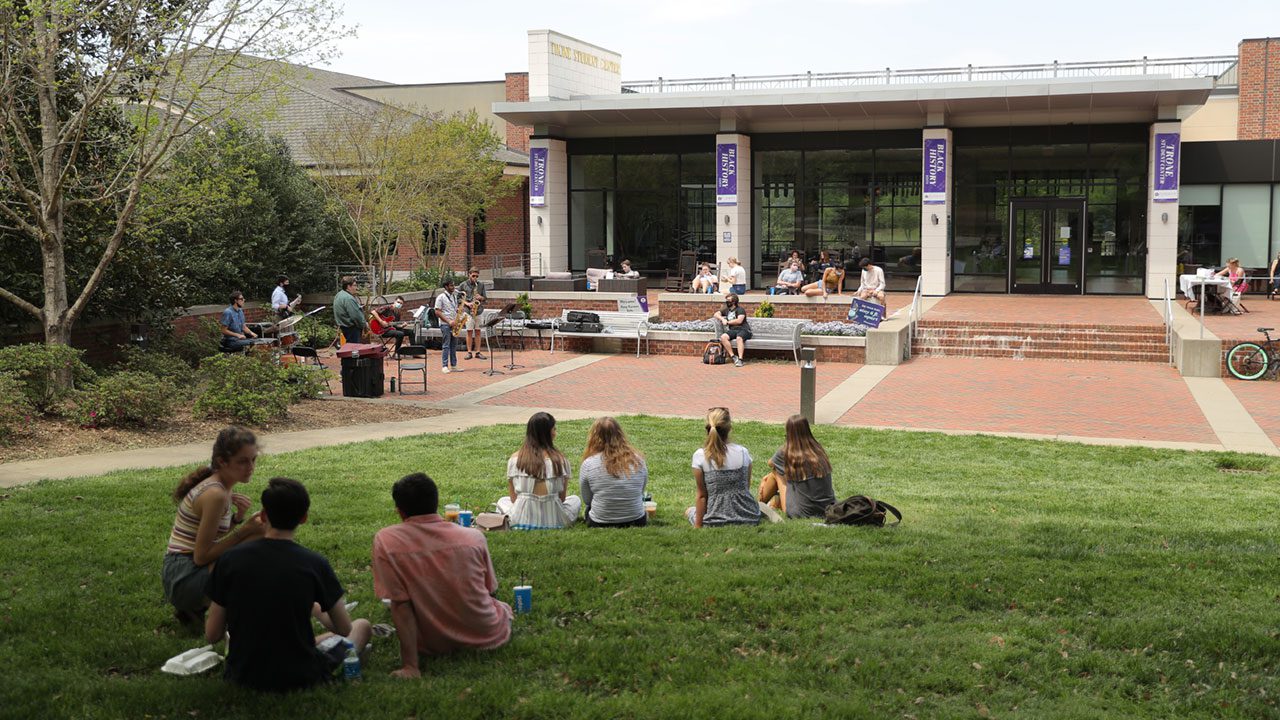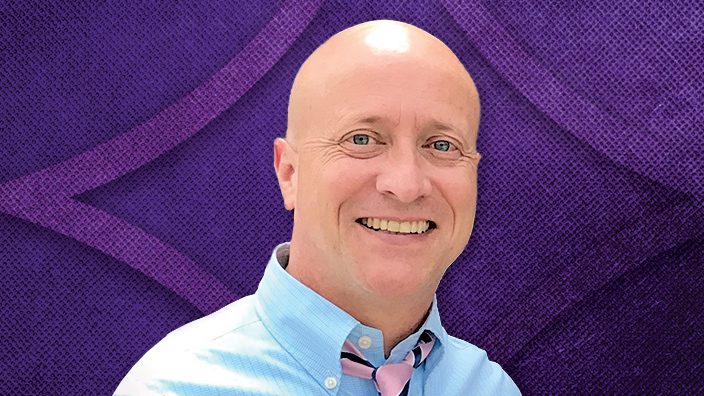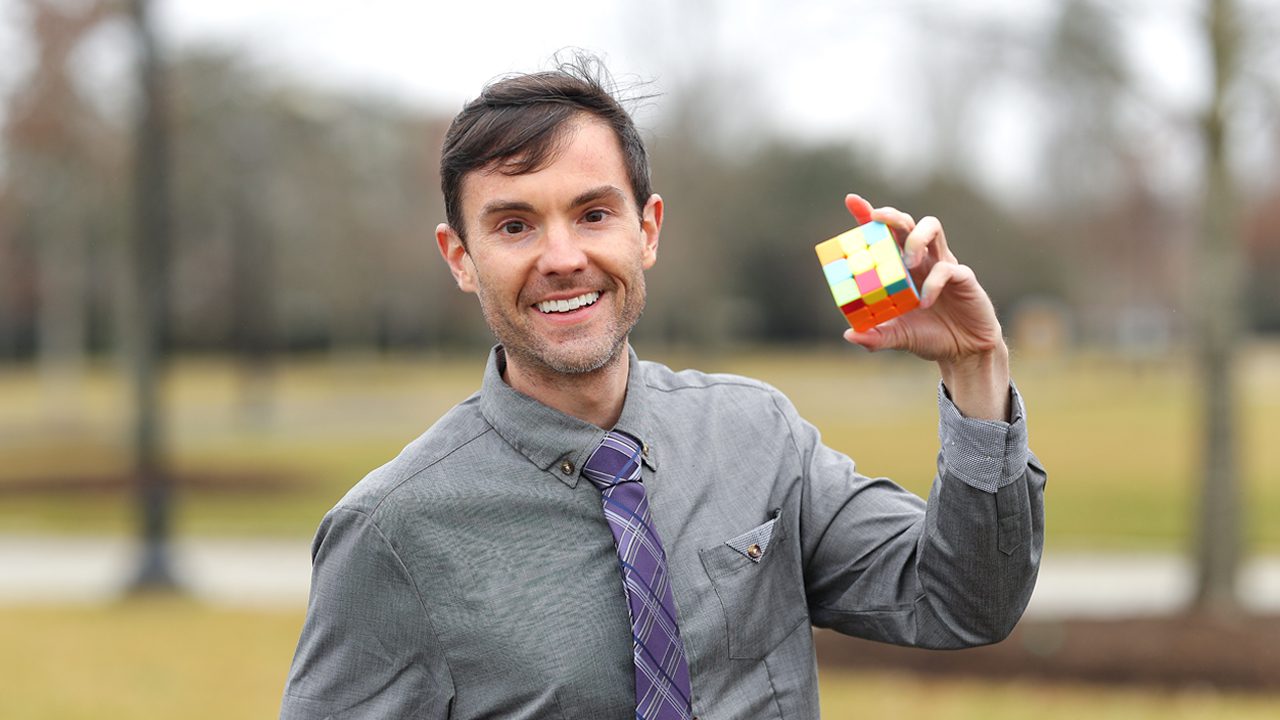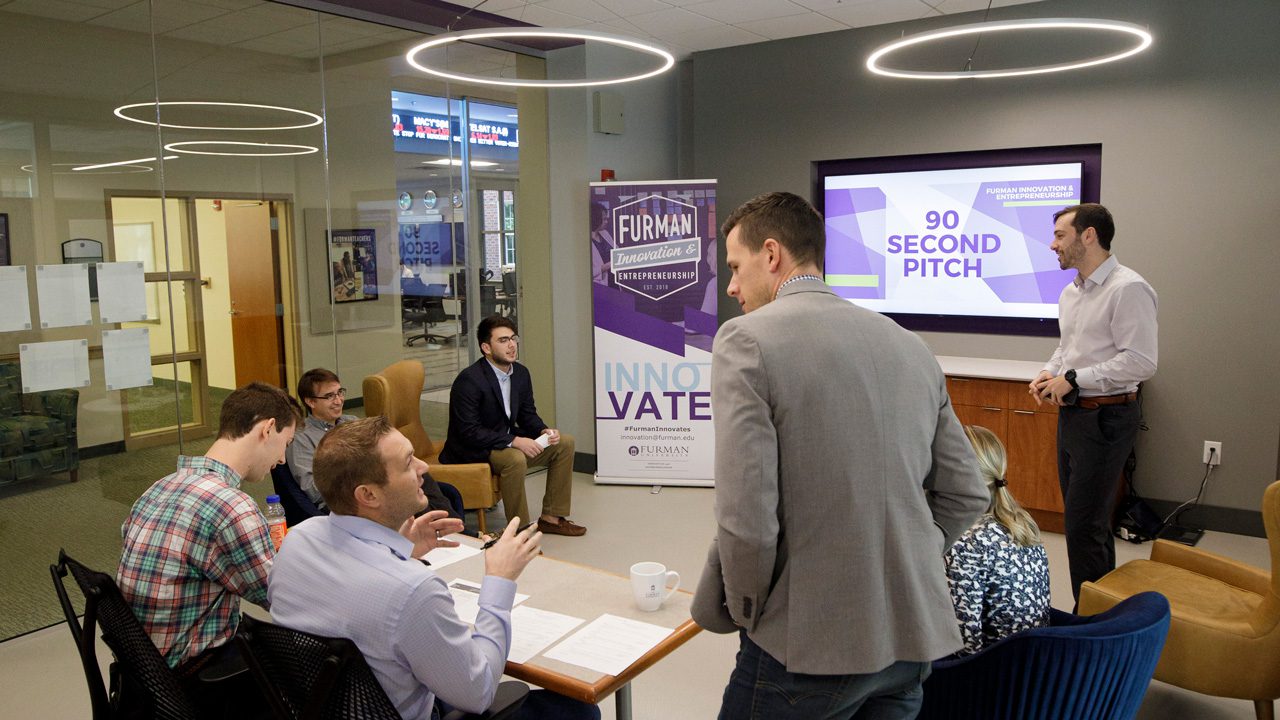

Students eat lunch and listen to the Singh Quintet during Furman Engaged in April.
THE FINAL STEP? TO SHARE, OF COURSE.
At Furman Engaged, students present their immersive learning experiences and show what’s possible at Furman.
Staff report

Molly Jennings ’21
When Molly Jennings ’21 isn’t working on her art, she might be fishing or looking for frogs.
But when she’s painting, she is almost certainly tapping into the inspiration of those same creatures and many others. Jennings’ senior thesis project, “Flora + Fauna at Furman,” sent her – with iNaturalist app in hand – deep into some of her favorite subject matter.“I absolutely love nature and animals,” she told those attending her presentation during the 13th annual Furman Engaged, a daylong celebration of immersive learning experiences, held in April.
Jennings’ love for the natural world shines in her work, four 18-by-24-inch pieces depicting places around campus and the area’s wildlife, including a swan, largemouth bass, blue dasher dragonfly, red fox, Eastern gray squirrel and an American black bear. She was among 650 students who shared their work during Furman Engaged.
In all, nearly 2,000 people registered to attend students’ presentations by video. This sharing – virtual this year due to the pandemic–is the final step of the students’ deep learning experiences, which include internships, research, service learning, study away, creative projects, first-year writing seminars and capstone experiences.
These opportunities are at the center of the university’s signature educational framework, The Furman Advantage. Students presented on a seemingly limitless variety of topics, including Dante’s two suns, predictive baseball models, quilts as autobiography, dementia research, and the effects of diet on the brain.

Nicole Weyer ’21
NICOLE WEYER ’21 worked with and observed genetic counselors during her internship with TriHealth Hospital System. She then used her internship experiences to shape her research on human cancers and genetic testing. And what began as an internship has become a job. Weyer accepted an offer to become a genetic counseling assistant at TriHealth, which will help her as she pursues a graduate degree in genetic counseling.

Willie Cornish ’21
WILLIE CORNISH ’22 hopes to compose music for TV, film and video games. In his notes about his six-minute piece, “The Butterfly Effect,” the music major studying composition cites the “metaphor of a small action, such as a butterfly flapping its wings, completely altering the direction and behavior of a large tornado/storm.” Cornish’s résumé lists 17 works, ranging from a West African percussion ensemble to solo guitar to a woodwind quintet.

Caleb Roberson ’21
CALEB ROBERSON ’21 spent one summer working with the Houston Astros’ front office. Using his experiences at Furman, he built a predictive model to help the Astros make decisions that increase the likelihood of winning. Furman Mathematics Professor John Harris helped Roberson secure interviews with five Major League Baseball clubs. The key to landing the internship, according to Roberson, was having a portfolio. “One thing that’s really helpful to get your foot in the door is to have some work you’ve done on your own,” he said. “Without that, I don’t think I would have been invited to any interviews.”


